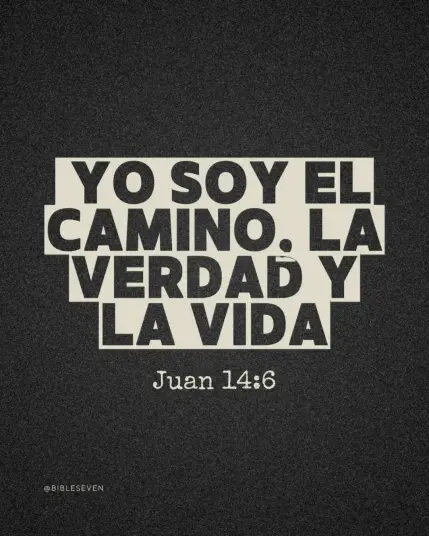Quote of the day, 26 June: Blessed Mary Josephine
It has always been my heart’s burning desire to fulfill the will of God; I have never wanted anything else. I have lived and am living the divine will. It is something I need more than the food I eat and the air I breathe.
— Blessed Mary Josephine of Jesus Crucified
Autobiography
Looking more closely at the history and message of Blessed Mary Josephine, we better understand the inescapable need for a contemplative dimension in every Christian life. Her example shows us a concrete path for cultivating it. Her very existence was a true school of charity—toward her fellow sisters and, through her cloistered life, toward a wide apostolic field she served only to help others love the Lord more deeply.
She, too, like Saint Thérèse of the Child Jesus, did not want to “become a saint by halves.”
With her own unique character and mystical gifts—marked by extraordinary spiritual experiences—she embodied a life entirely rooted in one guiding conviction: “I want to live by feeding on the will of God… I want my will to be made one with His.”
Again, in her Diary, she wrote: “I ardently desire to live in the will of God. I know that this is how saints are made, and I want to become a saint to give glory to God.”
This program of life should be the great aspiration of every Christian, in perfect harmony with the words of Christ, our only and supreme model: “My food is to do the will of the Father” (Jn 4:34), because “whoever does the will of God lives forever” (1 Jn 2:17).
Cardinal José Saraiva Martins
Message at the Beatification of Blessed Mary Josephine of Jesus Crucified
Naples, 1 June 2008
Translation from the Italian text is the blogger’s own work product and may not be reproduced without permission.
Featured image: A nun kneels before Blessed Mary Josephine in the cloister of the Carmel at Ponti Rossi. Image credit: Discalced Carmelites (Used by permission).
⬦ Reflection Question ⬦
What would it mean for you to feed on the will of God in your daily life?
⬦ Join the conversation in the comments.
#beatification #BlessedMaryJosephineOfJesusCrucified #gloryToGod #homily #willOfGod
✨ ¡JESÚS ES EL CAMINO! ✨
Él es EL ÚNICO camino al Padre y la vida eterna (Juan 14:6). En Jesús encontramos dirección, santificación y vida eterna. En un mundo de confusión, solo Su verdad nos transforma y da victoria aquí y ahora. ¡Hoy es el día para caminar en victoria con Cristo!
#JesúsEsElCamino #VictoryInChrist #FeImparable #GloryToGod #JesusIsKing
Quote of the day, 8 April: Cardinal Anders Arborelius, OCD
We begin with a poem of St. John of the Cross:
Mine are the heavens, and mine is the earth; mine are the people; the righteous are mine, and mine are the sinners; the angels are mine, and the Mother of God, and all things are mine, and God Himself is mine and for me, for Christ is mine and all for me. What, then, do you ask for and seek, my soul? Thine is all this, and it is all for thee (Sayings of Light and Love, 27).
Maybe we find this poem of St. John of the Cross somewhat bold and even presumptuous, but faith is bold.
We are immensely rich in Christ. Everything belongs to us, including God Himself. We are His heirs—as St. Paul says, co-heirs—with Christ. This certainty is the doctrinal basis of this poem. We may rejoice and be exultant about all the treasures that belong to us, thanks to Christ.
But at the same time, as St. John speaks about our richness in Christ, he, as all the saints, speaks also about our poverty in Christ.
Jesus Christ came as a poor man among the poor. When God became man, He preferred poverty during His life here on earth. Here we are again—one of these paradoxes of the Faith. God, Who is rich, becomes poor to make us, who are poor, rich.
This fundamental paradox helps us to adore the glory of God, where all the contrasts of ours are reconciled. Poverty and richness are united in God, reconciled in Him Who is everything but owns nothing. He is the Source of everything existing but gives it all away immediately after having created it.
Creation is generosity, prodigality, lavishness. God does not want to be the owner of it. The Creator does not keep what He has created for Himself. God just is what He is.
All through the Old and the New Testament, we hear the same thing — the “I AM” of Adonai , the Ego Sum of Jesus, but never, never do we hear, “I have this; I own this.”
Poverty is always an ideal in Christian life. Spiritual life is to be poor as Jesus, Who relied completely on His Father. Poverty teaches us to have confidence in God’s love and care for us.
Jesus tried to teach His disciples this art of spiritual poverty or, rather, poverty in the Holy Spirit, which also implies material poverty.
But poverty is not at all the same as misery. Only the poor in spirit can adore God as He wants to be adored. True adoration of God, as He is in Himself, is born from our own poverty.
All glory and honor belong to God triune. We rejoice in His glory and in our own poverty. We fall down in adoration of His infinite majesty and accept willingly that we are only poor and frail little beings. Then we become rich in Him.
Jesus became one of us to allow us to participate in His relationship with the Father, and, of course, there is no greater richness than that. Still, we can only receive this gift if we are poor. When we adore God, we grow in spiritual poverty.
Cardinal Anders Arborelius, O.C.D.
Chapter 13, To Adore and Glorify God
Arborelius OCD, A. 2020, Carmelite Spirituality: The Way of Carmelite Prayer and Contemplation, EWTN Publishing, Irondale, Alabama.
Featured image: Nativity scene by BlackMac for Adobe Stock (Stock photo, edited in Adobe Express)
#CardinalAndersArborelius #creation #gloryToGod #JesusChrist #poverty #StJohnOfTheCross #wealth


